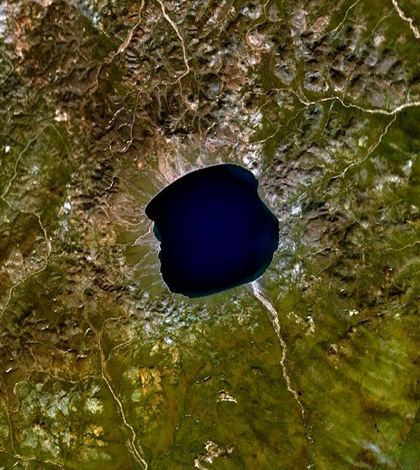Longest-ever Arctic sediment core gives clues to future warming

Researchers from the University of Massachusetts-Amherst have analyzed the longest sediment core ever collected on Arctic land, according to a release from the school.
The samples were taken in 2009 from under Lake El’gygytgyn, the oldest deep lake in the northeast Russian Arctic.
The core samples show that the carbon dioxide levels from 2.2 to 3.6 million years ago in the Arctic closely resembled present-day levels.
Evidence also shows that the Arctic had a significantly warmer climate during this period and was devoid of the ice sheets that blanket the region today.
Researchers believe that the data might indicate that climate patterns might be more susceptible to small variations in carbon dioxide levels than previously thought.
Image: Satellite image of Lake El’gygytgyn in Russia (Credit: Vesta, NASA WorldWind)





0 comments